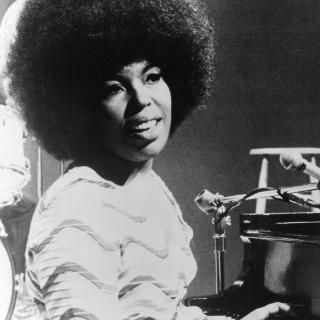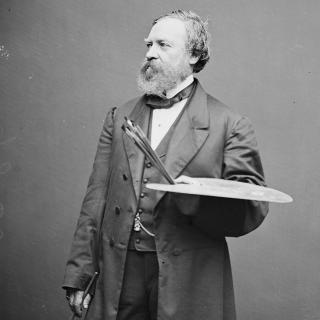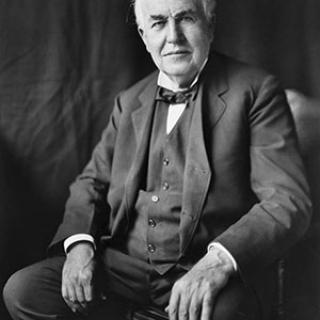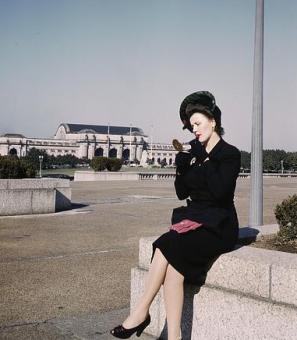Civil War Alexandria Through the Eyes of Judith Brockenbrough McGuire
When the Civil War began looming on the horizon, Judith Brockenbrough McGuire (1813-1897) was the wealthy wife of a prominent citizen in Alexandria, and like many on both sides of the conflict, she believed in a speedy and perhaps even non-violent end to the conflict. In the days leading up to the war, McGuire recorded in her diary the increasingly depressing landscape of Alexandria:
May 4, 1861
Our friends and neighbors have left us. Everything is broken up. The theological seminary is closed; the high school dismissed. Scarcely any one is left of the many families which surrounded us. The homes all look desolate; and yet this beautiful country is looking more peaceful, more lovely than ever, as if the rebuke the tumult of passion and the fanaticism of man. We are left lonely indeed; our children are all gone…
Today our house seems so deserted, that I feel more sad than usual, for on this morning we took leave of our whole household. Mr.- and myself are now the sole occupants of this house, which usually teems with life. I go from room to room, looking at first one thing and then another, so full of sad associations. The closed piano, the locked bookcase, the nicely-arranged tables, the formally-placed chairs, ottomans and sofas in the parlor! Oh and for some one to put them out of order! And then the dinner-table, which has always been so well surrounded, so social, so cheerful, looked so cheerless to-day, as we seated ourselves one at the head, the other at the foot, with one friend, -but one,- at the side.
May 10, 1861
Since writing last, I have been busy, very busy, arranging and rearranging. We are now hoping that Alexandria will not be a landing-place for the enemy, but that the forts will be attacked. In that case, they would certainly be repulsed, and we could stay quietly at home. To view the progress of events from any point will be sad enough, but it would be more bearable at our own home, and surrounded by our family and friends. With the supposition that we may remain, and that the ladies of the family at least may return to us, I am having the grounds put in order, and they are now so beautiful!
For a long time before our society was so completely broken up, the ladies of Alexandria and all the surrounding country were busily employed sewing for our soldiers. Shirts, pants, jackets, and beds, of the heaviest material, have been made by the most delicate fingers. All ages, all conditions, meet now on one common platform… our parlor was the rendezvous for our neighborhood, and our sewing-machine was in requisition for weeks... Oh, how we worked and talked, and excited each other! … no doubts, no fears were felt….
The confederate flag waves from several points in Alexandria: from the Marshall house, the market-house, and the several barracks. The peaceful, quiet old town looks quite warlike. I feel sometimes, when walking on king’s street, meeting men in uniform, passing companies of cavalry, hearing martial music, etc., that I must be in a dream…
May 15, 1861
Busy every moment of time packing up, that our furniture may be safely put away in case of a sudden removal. … we do not hope to remove many things, but to prevent their ruin. We are constantly told that a large army would do great injury if quartered near us; therefore we want to put things out of the reach of the soldiers, for I have no idea that officers would allow them to break locks, or that they would allow furniture to be interfered with…
May 16, 1861
All is quiet around us. Federal troops quartered in Baltimore. Poor Maryland! The north has its heel upon her, and how it grinds her! I pray that we may have peaceful succession.
May 17, 1861
Still quiet. [We] sat at the Malvern windows yesterday, spying the enemy as they sailed up and down the river. Those going up were heavily laden, carrying provisions, etc., to their troops.
May 21, 1861 [The day before the vote for Virginia’s seccession.]
Yesterday evening we rode to the parade-ground in Alexandria; it was a beautiful but sad sight. How many of those young, brave boys may be cut off, or maimed for life! I shudder to think of what a single battle may bring forth. The federal vessel Pawnee now lies before the old town, with its guns pointing towards it. It is aggravating enough to see it; but the inhabitants move on as calmly as though it were a messenger of peace. It is said that an undefended, indefensible town like Alexandria will hardly be attacked.
…Our people are busy in their preparations for defense; but time is necessary- every day is precious to us… My ear is constantly pained with the sound of cannon from the navy-yard at Washington, and today the drum has been beating furiously in our once loved metropolis.
Unfortunately, the tension between the states could not hold. The day after the vote to succeed, Union troops invaded and occupied the city of Alexandria. Despite McGuire’s hopes, war was at her doorstep.
May 25, 1861
The day of suspense is at an end. Alexandria and its environs, including, I greatly fear, our home, is in the hands of the enemy. Yesterday morning, at an early hour, as I was in my pantry, putting up refreshments for the barracks preparatory to a ride to Alexandria, the door was suddenly thrown open by a servant, looking wild with excitement, exclaiming, “Oh, ma’am, do you know?” “Know what, Henry?” “Alexandria is filled with Yankees.” “Are you sure, Henry?” said I, trembling in every limb. “Sure, ma’am! I saw them myself. Before I got up I heard soldiers rushing by the door; went out, and saw our men going to the cars.” “Did they get off?” I asked, afraid to hear the answer. “Oh yes, the cars went off full of them, and some marched out; and then I went to King Street, and saw such crowds of Yankees coming in! they came down the turnpike, and some came down the river; and presently I heard such noise and confusion, and they said they were fighting, so I came home as fast as I could.”
… Poor Jackson (the proprietor) had always said that the confederate flag which floated from the top of his house should never be taken down but over his dead body. …he was suddenly aroused by the noise of men rushing by his room-door, ran to the window, and seeing at once what was going on, he seized his gun, his wife trying in vain to stop him; as he reached the passage he saw Colonel Ellsworth coming from the third story, waving the flag. As he passed Jackson he said, “I have a trophy.” Jackson immediately raised his gun, and in an instant Ellsworth fell dead. One of the party immediately killed poor Jackson. The federals then proceeded down the street, taking possession of public houses, etc. I am mortified to write that a party of our cavalry, thirty-five in number, was captured. It can scarcely be accounted for. It is said that the federals notified the authorities in Alexandria that they would enter the city at eight, and the captain was so credulous as to believe them. Poor fellow, he is now a prisoner, but it will be a lesson to him and to our troops generally. Jackson leaves a wife and children. I know the country will take care of them. He is the first martyr. I shudder to think of how many more there will be.
The question with us was, what was next to be done? Mr. McGuire [the author’s husband] had voted for succession, and there were Union people enough around us to communicate everything of the sort to the federals; the few neighbors who were left were preparing to be off, and we thought it most prudent to come off too. Pickets were already thrown out beyond Shuter’s hill, and they were threatening to arrest all secessionists. With a heavy heart I packed trunks and boxes, as many as our little carriage would hold; had packing boxes fixed in my room for the purpose of brining off valuables of various sorts, when I go down on Monday; locked up everything; gave the keys to the cook, enjoining upon the servants to take care of the cow, “Old Rock,” the garden, the flowers, and last but not least, J-‘s splendid newfoundland. Poor dog, as we got into the carriage how I did long to take him! When we took leave of the servants they looked sorrowful, and we felt so.
… Mr. McGuire said, as he looked out upon the green lawn just before we set off, that he thought he had never seen the place so attractive; and as we drove off the bight flowers we had planted seemed in full glory; every flower-bed seemed to glow with the “Giant of Battles” and other brilliant roses. In bitterness of heart I exclaimed, “why must we leave thee, paradise!” and for the first time my tears streamed.
…When the federal troops arrived, a man being ordered to take down the secession flag from above the market-house, missed his foothold, fell, and broke his neck. …Is it ominous? I trust and pray that is may be.
…When we got to baily’s cross roads, Mr. McGuire said to me that we were obliged to leave our home, and as far as we have a right to any other, it makes not the slightest difference which road we take- we might as well drive to the right as to the left. It was a sorrowful thought but we have kind relations and friends whose doors are open to us, and we hope to get home again before very long. The south did not bring on the war, and I believe that god will provide for the homeless.
McGuire and her family fled to Richmond, where they struggled for money and waited for news that the tide of war had turned in favor of the Confederacy. The diary ends on May 4, 1865 with the solemn news of General Joseph E. Johnston’s surrender in North Carolina, part of the cascading southern surrender after Appomattox Courthouse. Despite her earlier optimism that surely the war would end quickly and the South would triumph, she bids goodbye to the Confederacy with the last words “My native land, good-night!” Her family did not return to the carefully locked doors and placed furniture of her Alexandria house. They lived in near-poverty in Essex County till the end of their days.
Sources
McGuire, Judith Brockenbrough. Diary of a Southern Refugee During the War, by a Lady of Virginia. 1868.
Women in the Civil War, Vol 1. Ed. Lisa T. Frank. (ABC-CLIO, Inc.: 2008).


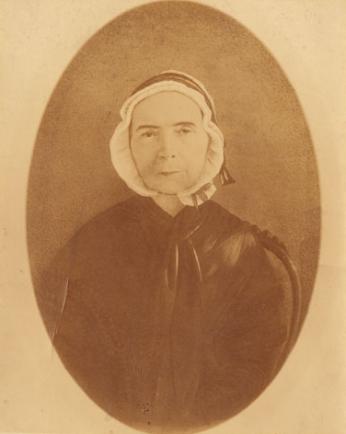

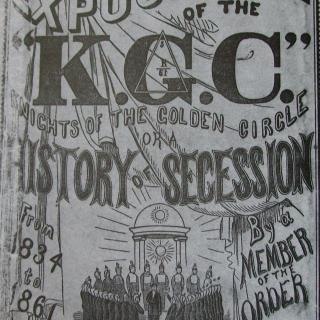
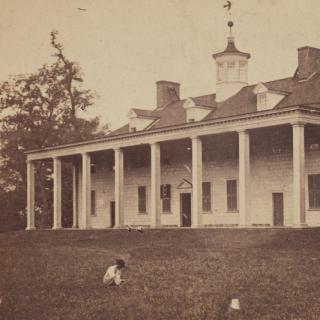
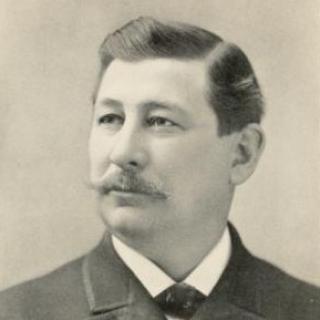
![Sketch of the mythical fuan by Pearson Scott Foresman. [Source: Wikipedia]](/sites/default/files/styles/crop_320x320/public/2023-10/Goatman_Wikipedia_Faun_2_%28PSF%29.png?h=64a074ff&itok=C9Qh-PE1)







